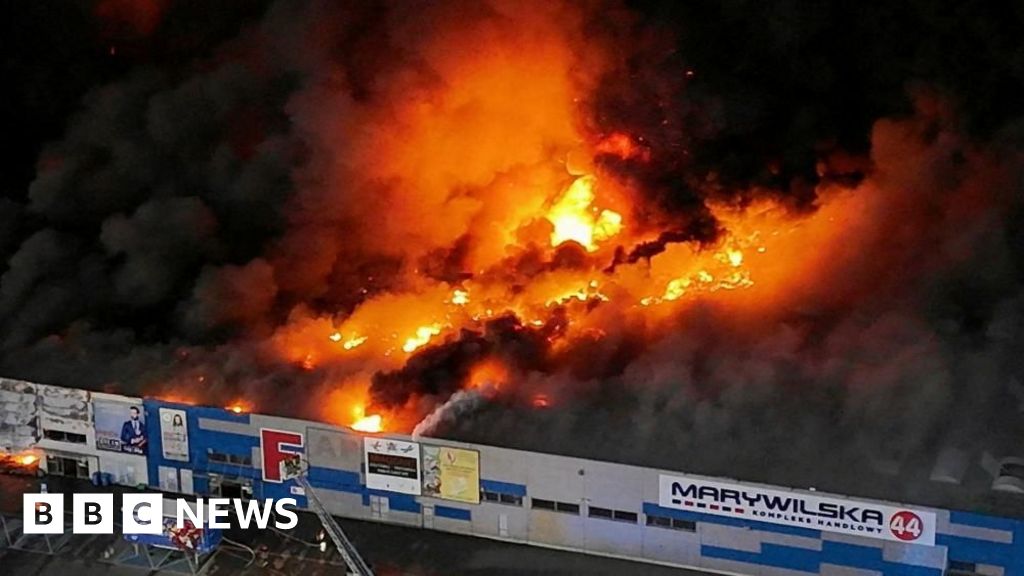Poland Accuses Russia of Orchestrating Arson Attack on Shopping Centre










2025-05-12T01:49:27Z

Poland has leveled serious accusations against Russian intelligence services, claiming they orchestrated a devastating fire that nearly obliterated the Marywilska shopping centre in Warsaw last year. This allegation was announced by Prime Minister Donald Tusk in a post on social media platform X, where he stated that Poland is certain the catastrophic blaze was the result of arson ordered by Russian special services.
Tusk revealed that some individuals implicated in the incident are already in custody, and efforts are underway to locate others believed to be involved. While the Russian government has yet to respond to these specific allegations, it has a history of denying accusations of sabotage in Europe.
The fire, which occurred in May 2024, wreaked havoc on the local economy by destroying about 1,400 small businesses. This was particularly devastating for many workers, as a significant portion of the staff at these establishments were members of Warsaw's Vietnamese community, who had established their livelihoods in the city.
In the wake of the incident, Polish authorities conducted a thorough year-long investigation. The findings concluded that the fire was orchestrated by an unidentified individual residing in Russia. In a joint statement, Poland's justice and interior ministers asserted that actions taken by those in custody were “organized and directed by a specific person residing in the Russian Federation.” Furthermore, they noted ongoing collaboration with Lithuania, as some perpetrators allegedly carried out similar acts of sabotage in its territory.
Since the onset of Russia's full-scale invasion of Ukraine in 2022, Poland has taken a hard stance against suspected acts of sabotage linked to Russian intelligence services, detaining and convicting several individuals for their roles in such activities. Polish officials have categorized these assaults as part of a broader “hybrid war” being waged by Moscow. This term, hybrid warfare, refers to tactics employed by a hostile state to conduct anonymous attacks that are difficult to attribute directly to them. Such operations can inflict significant damage on the opposing nation’s infrastructure without officially declaring war.
NATO has echoed these concerns, asserting that Russia is engaging in hybrid warfare across Europe, aiming to punish or deter Western nations from offering military support to Ukraine. This ongoing tension has created a climate of suspicion and fear regarding Russia’s intentions and actions in the region. Moscow has consistently rebuffed accusations from NATO countries regarding its clandestine sabotage operations.
Adding to the regional tensions, Lithuanian prosecutors previously accused Russia's military intelligence service of involvement in an arson attack on an Ikea branch in Vilnius the same year. At that time, Tusk noted that Lithuania had validated Warsaw’s suspicions that the Russian secret services were responsible for the fires at shopping centres in both Vilnius and Warsaw, leading to the arrest of two Ukrainian suspects.
 Maria Kostova
Maria Kostova
Source of the news: BBC